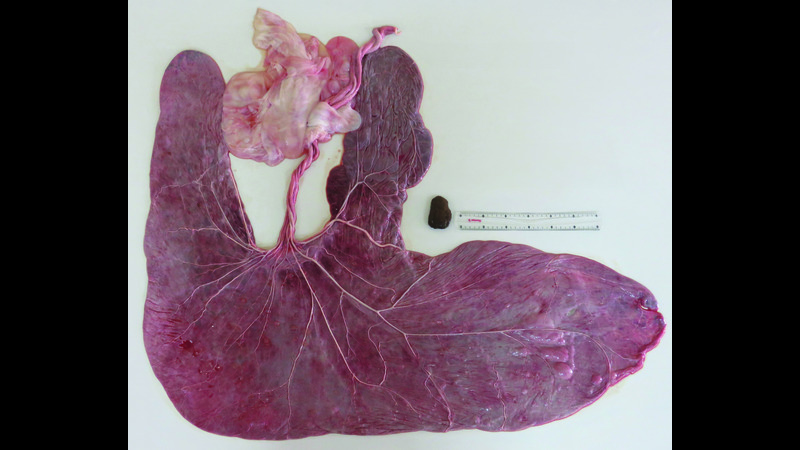Examination of the term placenta: the ultimate disposable organ
There is huge diversity in the type of placentation that mammals use to ensure that they can nurture and develop an embryo into a viable offspring at term. However, every type of placenta in domestic animals is, in effect, an organ that will supply nutrition to the growing fetus, remove waste products, protect the fetus and produce hormones and growth factors that will orchestrate the whole process. At birth the importance of a thorough examination of this disposable organ should not be over-looked. The equine practitioner should become familiar with the term ‘placenta’ so they can recognise completeness, normality and, therefore, abnormality. This paper describes the examination of the term ‘placenta’ and illustrates, descriptively and pictorially, normality and some of the quirks and anomalies that occur and their implication for fetal and maternal wellbeing.
Sandra Wilsher -
